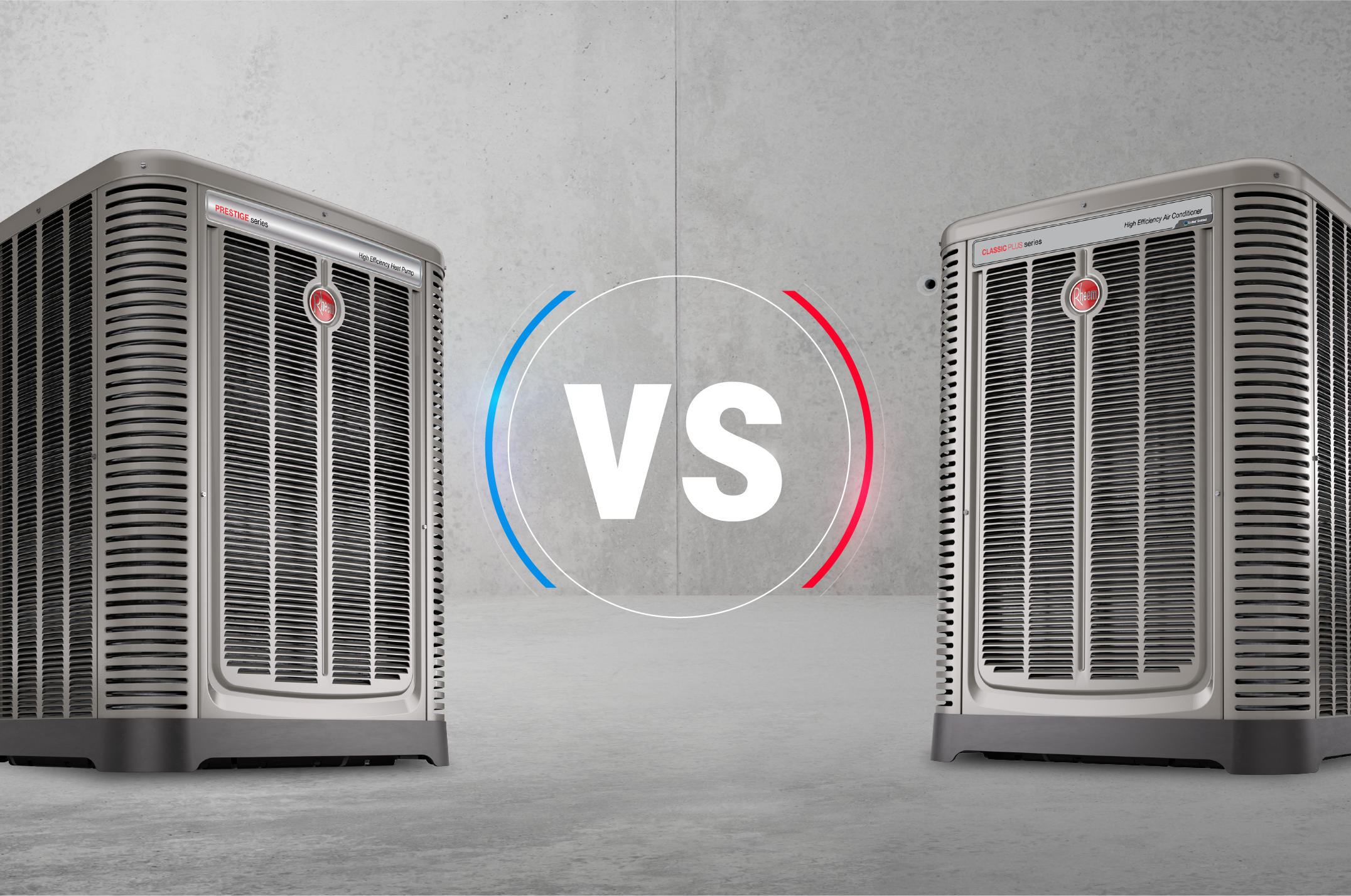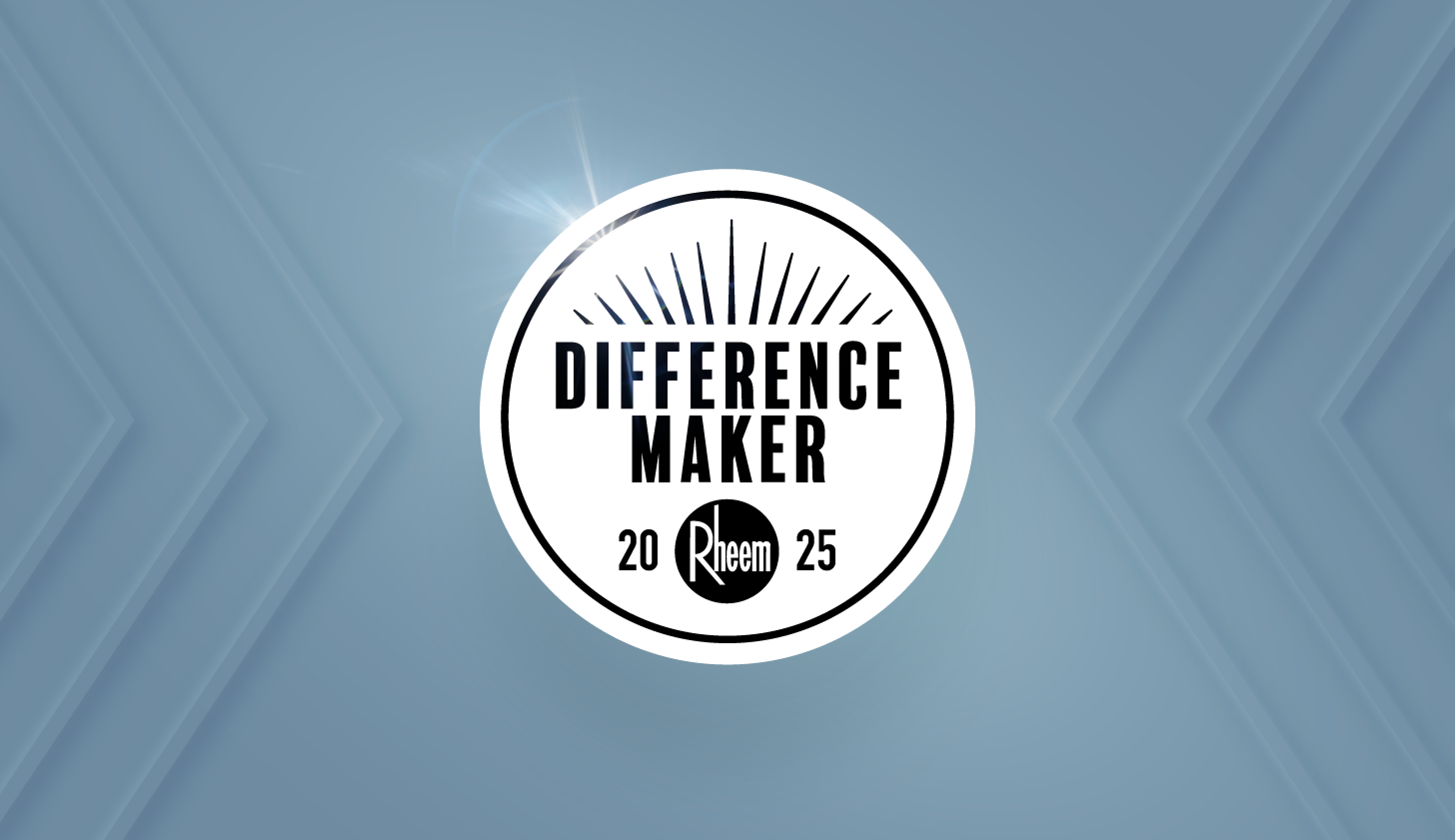A Guide to Heat Pumps vs. Air Conditioners
March 31, 2022


How to Choose the Heating and Cooling Option Best for You
It’s an HVAC debate as old as time: Do you need a heat pump or an air conditioner?
The truth is that both can be great options to keep your home cool and comfortable. Beyond looking nearly identical from the outside, both draw heat from the air inside your home and use refrigerant to transfer heat outside on warm days, cooling the home.Whether one unit is better for you than the other comes down to location, efficiency and sustainability. Here’s what you need to know to make the best decision for your home.
The Advantages of a Heat Pump
Although both heat pumps and air conditioners can effectively cool your home, only heat pumps can provide warmth during colder weather. That’s because heat pumps can run in reverse and efficiently draw heat from the air outside, even if temperatures are lower outside, and pump it inside to create a warm, comfortable home. This means that if you live in an area that experiences chilly temperatures, a heat pump might be a better option for you.
That said, if temperatures get frigid where you live, typically below 40 degrees in standard systems or 17 degrees in Rheem’s most efficient models, a heat pump’s efficiency begins to drop, so a secondary heat source may be used as a backup when temperatures dip. “A dual fuel system that connects a heat pump to an indoor coil on top of a gas furnace can give you the flexibility to leverage either gas or electric fuel sources, which allows your system to find the perfect balance of comfort and efficiency,” says Jeff Goss, Director of Product Management, Residential Systems, at Rheem Manufacturing.
One of the biggest benefits of a heat pump is its energy efficiency. Because heat pumps run on electricity, they reduce the need for natural gas. Heat pumps also generally put out more cool and warm air by volume than the amount of energy is takes to run them. Together, these two elements make them more sustainable than other heating options.
When it comes to maintenance, there is a common misconception that heat pumps require more service than air conditioning units. But because heat pumps use a small amount of electricity to run overall, they are less expensive to operate and maintain than a natural gas furnace. Twice-a-year maintenance, same as an AC unit, is sufficient to keep your heat pump in regular working order.
When to Install an Air Conditioner
Unlike a heat pump, air conditioners cannot create heat, which means they only act in cooling mode. If you live in a warmer climate and are just looking for a way to cool your home year-round, an air conditioner is a great choice.
If your home does require heat and you have an AC unit installed, you will need another heat source, such as a furnace. Furnaces do release greenhouse gases, making them less environmentally friendly than heat pumps. Although heat pumps deliver savings and sustainability when its chilly, when it’s cold, furnaces may heat your home more effectively.
Finding the Perfect Cooling Solution
Now that you know the difference between heat pumps and air conditioners, which is right for you? Your HVAC contractor may recommend one unit over another based on the following four criteria.
-
Location
As you learned above, the outside temperature of where you live plays a big role in whether a heat pump or air conditioner is a smarter, more efficient choice for your home. Homes located in areas where temperatures dip seasonally may require a heat pump that can warm up the home during chilly temperatures. Meanwhile, homes located in warmer climates that only require cooling may opt for an air conditioner.
-
Size of home
The size of your home—in other words, how big or small the space that needs to be cooled and heated—is also an important factor. For example, if a heat pump is too small for a space, it won’t be able to heat or cool your home comfortably. And if it’s too big, it will waste energy producing too much hot or cold air. A professional contractor can help you size your unit properly to ensure that it fits just right.
-
Existing systems
Other than the size of your home, the systems you already have in place also come into play. Your home’s ductwork, electrical wiring and existing temperature control solutions, if any, may or may not allow for the addition of a heat pump or air conditioner. You’ll want to have a professional do a thorough audit of your home to find the solution that best works for where you live.
-
Budget
No matter the budget, there are heating and cooling options for everyone. The upfront cost of installing a heat pump might be more expensive than an air conditioner, but the reduction in energy use reflected in your utility bills can outweigh the initial cost. In fact, recent case studies conducted in Arkansas show that homeowners saw a 52% reduction in energy use. “An innovative, modern heat pump will provide more bang for your buck—and energy usage,” Goss says.
When it comes to effectively and efficiently heating and cooling your home, there are many options to choose from. Our Rheem Pro Partners are standing by to help provide advice based on your needs, size of home, existing systems and best possible solution for your budget. Find an independent Rheem Pro in your neighborhood to learn more about heat pumps and air conditioners or for help with installing the unit that’s right for you.







